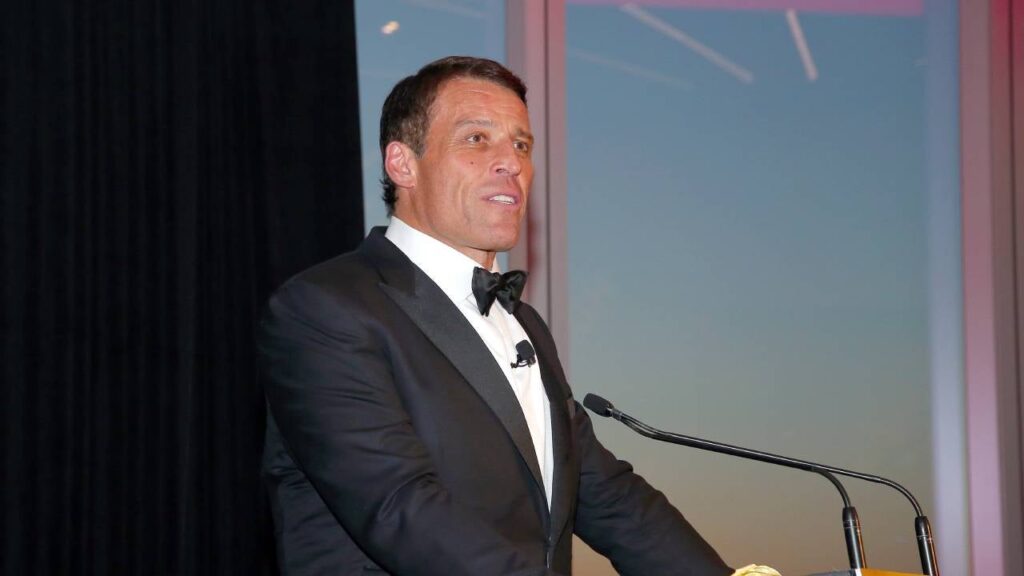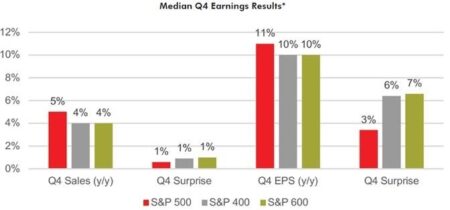Tony Robbins is a best-selling author, life coach, and business and investment strategist — an all-around success guru. Robbins focuses on self-improvement, giving people tips and tactics to live a richer, more rewarding life, including strategies to invest their money.
While he’s perhaps most known for his books on motivation, he’s focused in recent years on investing and personal finance. His books in this field include “Money: Master the Game: 7 Simple Steps to Financial Freedom” (2014), “Unshakeable: Your Financial Freedom Playbook” (2017) and “The Path: Accelerating Your Journey to Financial Freedom” (2022).
Below are some of Robbins’ most valuable tips for navigating the financial waters, including what to look for when hiring a financial advisor.
9 tips from Tony Robbins on building and maintaining wealth
1. You have to be an owner to build wealth
“You’re never going to earn your way to financial freedom,” said Robbins in his 2017 book “Unshakeable.” “The real route to riches is to set aside a portion of your money and invest it, so that it compounds over many years. That’s how you become wealthy while you sleep.”
If you’re earning a living, you can only work so many hours a day. But if you have capital, it can work all the time. Invest that capital smartly in time-tested investments, such as stocks, and you have a fractional ownership interest in a business. And unlike working for a living, that money can compound over time.
2. Most actively managed funds don’t beat the market
It’s no secret that outperforming the stock market is hard. Real hard, in fact.
“The truth is that 96 percent of actively managed mutual funds do not beat the market over 15 years,” said Robbins on his blog. “Active managers try to beat the market with great stock picks, but the 4 percent that achieves that constantly changes.”
Since active funds don’t beat the market, you can turn to passively managed funds, which offer low costs and attractive returns. It’s easy to invest in the S&P 500, a collection of hundreds of America’s top companies, using a low-cost index fund. These passively managed funds are the benchmark to beat, so by owning them, you’re effectively outperforming almost all active funds.
It’s easy to purchase an S&P 500 index fund, and the best ones charge low fees.
3. Make compounding work for you
Letting your money compound over time is one of the best ways to grow your wealth. While you’ll need to build up some capital to start, eventually your money can grow by itself. Robbins gave the following example on his blog to illustrate the principle of compounding:
“A 19-year-old, who saves $50 per week, will save $2,600 per year,” he said. “If they do this until age 65 and average a 10 percent annual return (i.e., about the S&P 500 average return over the last 90+ years, 1926 through 2018), they will have over $2.2 million at age 65!”
In this example, the investor saves just $119,600 over a period of 46 years, but turns it into more than $2 million by the end. That’s the power of compounding an asset over time. And this spectacular return occurs while saving just $50 a week — meaning you can do even better if you invest more and give compounding time to work.
4. Ditch the high fees
It can be easy to overlook the cost of high fees on your investments, but it’s one of the most powerful detractors from your wealth. Fund fees act like a tax on your wealth. Robbins returned to the same example above to explain the costly effects of fees:
“If she paid 2 percent in annual fees (from age 19 until age 65), she would no longer have over $2.2 million at retirement. She would have $1.16 million — an almost 50 percent reduction in her potential nest egg.”
Those fees are money that could be in your pocket instead. The thing is, it’s relatively easy to minimize fees by conducting just a little bit of research into the best index funds. You have plenty of available low-cost investment funds, but you’ll need to do a little legwork to find them.
5. Work with an expert advisor
A good financial advisor can add value to your life in a variety of ways.
“Ideally, if you’re using an advisor, you should be getting more than just someone to design your investment strategy,” said Robbins in “Unshakeable.” “What you really need is someone who can help you as the years go by to grow your overall wealth by showing you how to save money on your mortgage, insurance, taxes, and so on — someone who can help you to design and protect your legacy.”
There’s no question that an advisor can help you make the right investments for your financial needs, but a good advisor can help you in a variety of other areas of your financial life, too.
Need an advisor to help you set your goals?
Bankrate’s AdvisorMatch can connect you to a CFP professional to help you achieve your financial goals.
6. Asset allocation reduces your risk
“Anybody can become wealthy; asset allocation is how you stay wealthy,” said Robbins on his blog. “Asset allocation means dividing up your money among different investment classes (stocks, bonds, commodities, real estate, etc.) according to your goals, needs, risk tolerance, and stage of life — and it’s your most crucial investment decision.”
Asset allocation works because different types of assets perform differently in different economic climates and over time. Stocks are volatile in the short term but deliver among the best long-term returns, while bonds are more stable but deliver lower returns.
In contrast, real estate may generate steady and growing cash flow, helping to even out an investment portfolio. So asset allocation considers how your total assets are structured to work best for your needs. Done right, asset allocation gets you the returns you need at a lower level of risk.
7. Plan to minimize taxes
It can be easy to forget about taxes when you’re trying to grow your wealth, resigning yourself to the fact that they’re a necessary detractor from your returns. But you can still minimize them in certain areas and take advantage of legal loopholes to do so.
“Ignoring taxes seriously impacts your ability to create compounded growth for your future life,” said Robbins on his blog. “There is no good reason to pay more taxes than you have to, and every reason to avoid unnecessary taxes. Tax efficiency = faster financial freedom.”
One of the best ways for investors to minimize their taxes is to take advantage of rules that allow you to enjoy capital gains without paying taxes on the unrealized gains. That is, if your stock or fund appreciates in value, you won’t owe capital gains taxes until you sell it. So, you could hold a stock for decades — compounding all the time — and never own any capital gains taxes on it.
8. Downturns are a huge opportunity
Investors can be a scared bunch, always trying to avoid the market’s next downturn. But long-term investors can turn those downturns into a real opportunity for gain.
“Market turmoil isn’t something to fear. It’s the greatest opportunity for you to leapfrog to financial freedom,” said Robbins in “Unshakeable.”
When the S&P 500 index falls, it can be a great opportunity to invest even more. You can buy the index at a discount and then ride it up even faster as it approaches its long-term return. If you’re trying to get in and out of the market all the time, it’s harder to see a downturn as an opportunity. Plus, if you’re making short-term trades, you’re maximizing your taxes instead of minimizing and lowering your ability to compound your money over time.
9. Work with a fiduciary
When you hire a financial advisor, it’s important that you hire someone who’s going to work in your best interest all the time. If you use someone assigned to you as an advisor who acts like a broker to sell you financial products, you’re not going to get the best advice all the time.
“Using a broker instead of a fiduciary is one of the biggest stock investing mistakes,” said Robbins on his blog.
Experts say the gold standard is to find a fee-only fiduciary advisor, who is someone who must put your interest over theirs in every situation. You’ll give yourself the best shot at working with an advisor who will give you the best advice for your financial situation all the time. You can’t afford to have anything less than that.
Bottom line
It can pay to look to high-profile investors for advice on how to implement the best investment strategies. Through his blog and books, Tony Robbins offers a number of tips on how to achieve financial success, including how to deal with market downturns and what to look for in a financial advisor.
Read the full article here
















